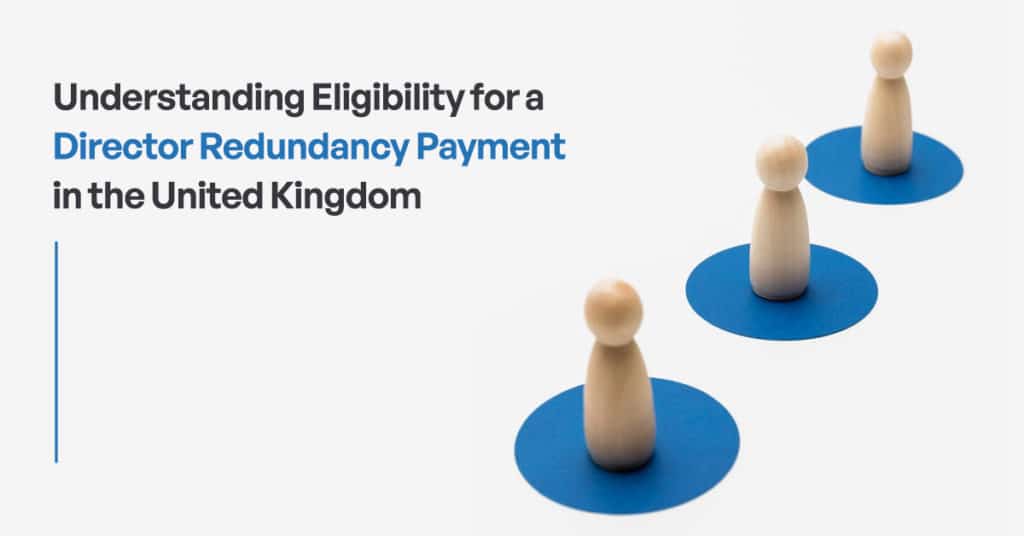Most company directors are likely already aware that statutory redundancy payments are available that their employees can claim if they work for a business for at least two years. Many directors might not know that they, too, may well be able to claim for these payments as well. If your business is struggling financially and it looks like closing down might be the only viable option then you may well be able to claim some redundancy pay to help you out a bit.
Enlisting the Help of An Expert
The below article will talk in more detail about the eligibility of director redundancy pay and what you can expect to receive; however, it does vary depending on your situation. As such, if you would like information more catered specifically towards yourself and your business, then you should consider getting in touch with experts who are going to be able to help.
Can You Claim If Your Company Enters into Liquidation?
So, what are the criteria that directors need to meet in order to claim redundancy pay? If you have been the director of a now insolvent company that has been trading for over two years and you decide that it is time to liquidate it then you could claim insolvency pay, but there are conditions you need to meet. Also, you may well be entitled to other statutory payments like holiday pay, notice pay and unpaid wages, so it is worth checking these out as well. If you want to claim these payments, then you are going to have to prove that you have been operating for your company for a certain period of time. A liquidator will likely ask you a number of questions in order to effectively determine what your employment status is. When answering, you’ll need to focus on:
- Whether there is a contract of employment in place, and if so, is this contract written, implied or oral?
- Is the money that will be claimed owed by the insolvent company?
- Do you work at least 16 hours a week on average for the insolvent company?
- Is your role more than just being an advisory position or a non-executive role?
Generally speaking, if you were paid through the PAYE system as an employee of the business, then you will likely succeed in your claim. On the other hand, if you were paid through dividends, it will be harder to prove your employment status.
Making a Claim
If you are eligible for director redundancy pay then the average claim comes to about £12,000. This can be a real lifeline once your business has just closed down. All claims need to be made through a Redundancy Payments Service which forms a part of the Insolvency Service. Your liquidator will inform you of the best way to process your claim. If the claim ends up being successful then it will get paid by the National Insurance Fund.
If you are considering making a claim for redundancy and claiming other statutory benefits, then as a general rule, this should be done within six months of the liquidation. It can be extended to twelve months, but that only applies in certain circumstances.
How Much Redundancy Pay Can You Expect the Government Pay?
If you are claiming redundancy pay from the government, then the amount you can expect to receive varies depending on age. The amounts include:
- 22 and Under: If you’re 22 years old or under then you will receive half a week’s worth of pay for every year you have worked.
- 22 to 40: If you are between the ages of 22 to 40 years old then you will be in a position to claim for one week’s worth of pay for every year of service.
- 41+: If you are 41 years old or above, then the amount increases as you can claim one and a half weeks of pay for every year of service.
- Holiday Pay and Salary: If you are the director of a company, then you also have the ability to claim up to eight weeks of unpaid wages, not to mention six weeks of holiday pay for any holiday days that might have been accrued but not taken.
- Notice Pay: Finally, company directors also have the ability to receive payment in lieu of notice if their employment at the company has ended without the proper notice period being served. Directors have the ability to claim about one week’s worth of pay for every year of unemployment instead of receiving notice.
Is Redundancy Pay Taxed?
If you are receiving redundancy pay, then the first £30,000 that you receive is completely tax-free. However, when it comes to receiving other elements of pay, such as holiday pay and any payment received in lieu of notice, you will get taxed on these elements the same way you are taxed on normal wages.
Do You Need Help Claiming Redundancy Pay?
If your business has found itself under difficult financial times, then it may be the case that it’s time to consider liquidation. This is difficult at times, but by using the right liquidators, the process will be as smooth as possible, and they will be able to help you when it comes to claiming for the likes of redundancy pay, holiday pay and payment in lieu of notice. If you need help, then please contact us at Simple Liquidation.
We will take the time to sit down with you and learn all about your business and your industry and then carry out your liquidation in the most seamless way possible, which is beneficial to both you and your creditors. We will also be able to provide plenty of advice when it comes to redundancy pay. If you have any questions or would like any further information whatsoever then do not hesitate to get in touch as soon as possible.




